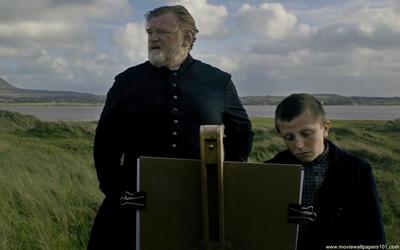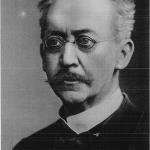This post was first published at The Federalist.
Stop the presses. More unlikely than spotting a unicorn, uncovering the Holy Grail, or finding Beyonce’s pants, a rarity is about to appear in theaters.
A faith-friendly movie is winning the respect of secular critics and appealing even to those who would never darken the door of their local church. Not only that, but it succeeds in the basic, fundamental job of a movie: It entertains.
“Calvary,” from the Irish team that made “The Guard,” follows a priest (Brendan Gleeson) who receives a death threat from a parishioner, in revenge for being abused by another priest as a child. The who’s-gonna-do-it mystery plays out over the movie’s ensuing week with dark humor and touching pathos. How will Father Lavelle respond? Who is the would-be killer, and will he actually follow through?
It’s a good flick about a good Christian man.
Soulless American Christian subculture films like “God’s Not Dead,” or “Grace Unplugged” can learn a thing or two from the fighting Irish. Try eight.
1. People come to listen to a story, not a sermon.
If your story can be summed up as “a nonbeliever learns the error of his ways,” it’s not a story, it’s a sermon. “Calvary” doesn’t feel like a sermon because it tells an old-fashioned murder mystery tale with a victim that happens to be a very good priest. Although Lavelle knows the identity of the potential murderer, the viewer does not. Much of the fun in the film is from looking for clues, exploring each suspect’s potential motive, and guessing what ‘s going to happen.
The message for moviemakers: Unless you’re Jesus, don’t build your story around your message.
2. Good intentions don’t replace good quality.
Gleeson completely becomes Father Lavelle, supported by a rich script from John Michael McDonagh, who also directs with a deft hand. The expertise both men have built over their careers shows in the final product.
Message for moviemakers: Take time to learn your craft. Be willing to pay dues. Love the craft of writing, not just the message. Love the beauty of film work, not just the platform. If you don’t get excited about a long camera shot or a brilliant script, this isn’t the field for you.
3. Love all your characters, even the nonbelievers.
This mystery works so well because the characters around the good father are fully-rounded humans. The mocking, in-your-face adultress? There’s a reason she acts that way. The bitter atheist? He’s got a good side. The consumption- and greed- oriented businessman? There’s an emptiness in his soul. In the end, the viewer sees each character as a beautiful, flawed human being desperately in need of a savior.
Message to moviemakers: No one deserves to be a caricature. Love your villains as much as your hero.
4. We’ve all got doubts. Make room for them.
Father Lavelle isn’t afraid to say those special three little words: “I don’t know.” He doesn’t know how to help a dying author, an insane criminal, a bereaved widow, or a gay boy-toy. All he can offer is his faith that God does know.
Message to would-be moviemakers: Ignoring doubt doesn’t make it go away. It only highlights it.
5. Faith-friendly and family-friendly are not the same thing.
If your main goal is to make a PG rated film with no boobs or f-bombs, you’ll miss great human stories, including many of the ones in the Bible. Make great kids’ movies for kids, but make great grown up movies for adults. “Calvary” is rated R for language, brief violence, and adult themes, but isn’t salacious or graphic.
Message for filmmakers: Follow the story where it takes you.
6. Acknowledge that believers sometimes do bad things.
The Catholic pedophile scandal is almost another character in Calvary. These parishioners are confused, hurt and betrayed by the failure of an institution they trusted. Lavelle’s response never denies, ignores, or explains away the scandal. He offers a faith beyond it, a faith the town desperately needs.
Message to filmmakers: Be brave enough to show the downside of the faithful. God can take it.
7. Don’t pull your punches.
Father Lavelle is a priest. Who is Catholic. Like the Pope. He tells people what God has said in Scripture, calls them on their evasions, and never apologizes for what he believes. The best Christian characters are nuanced, but unapologetically Christian. It’s at the core of who they are. Audiences respect consistent characters. Don’t hint or use euphemisms or tiptoe around faith.
Message to filmmakers: If you’re going for faith, go full Monty.
8. Go for the heart, not the brain.
Christian subculture films often focus on convincing the viewer of some sermon-friendly point. “Calvary” hits deeper. It makes the case for faith by presenting the emptiness of life without it.
When you think about it, most people occupying church pews didn’t come to belief through a logical debate. Ask people about the moment they found God and they will tell you emotional, mystic moments: The time they sat in Taco Bell and saw the beauty and diversity of the faces around them and knew there must be a Creator. The time they came to the desperate end of their own goodness in a hotel room and begged for mercy. The time they heard their baby laugh and knew there must be a soul.
Message to filmmakers: Film is about feelings. Find the emotion of faith, the dark night of the soul, the joy of being used by God, a deep love of humanity in its beautiful brokenness, or the experience of the God of the Universe touching a human heart—and you will find a movie worth making. For everyone.


















